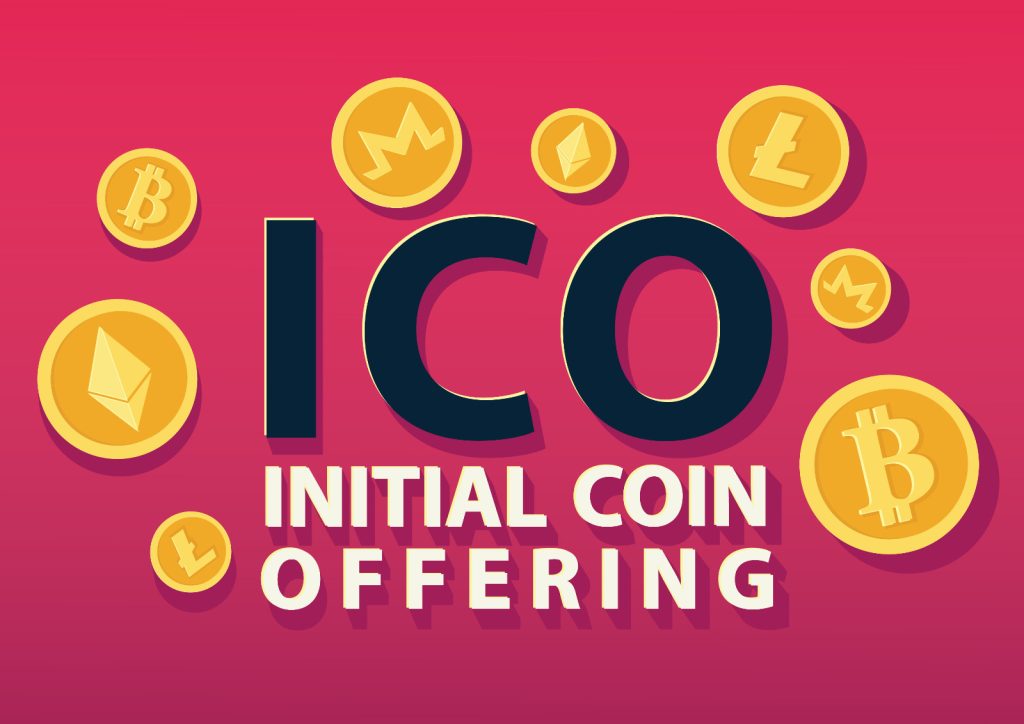First, let’s address the burning question, “What’s ICO?” In the world of cryptocurrencies, ICOs, or Initial Coin Offerings, stand as a modern fundraising method. Emerging as a financial phenomenon, ICOs have transformed the way startups amass capital to fuel their innovative projects.
ICOs are comparable to the traditional Initial Public Offerings (IPOs), where companies open their stock to the public for the first time. However, ICOs bypass the regulatory hurdles and complexities that IPOs face, offering a faster route to secure investments. Instead of offering stocks that symbolize ownership, ICOs, often held by blockchain-based companies, release digital tokens or coins. These tokens can serve various purposes, from providing access to a service to bestowing voting rights in the ecosystem of the project.
ICOs gained momentum with the surge of cryptocurrencies and the adoption of blockchain technology. Their decentralized nature, combined with the potential of high returns, has made ICOs an exciting prospect for investors worldwide.
Origin and Evolution of Initial Coin Offerings
Understanding the ICO meaning would be incomplete without a glance at its history. ICOs first came to the limelight with the launch of Mastercoin (now Omni) in 2013. However, it was Ethereum’s ICO in 2014 that truly sparked interest in this novel method of raising funds. The Ethereum ICO raised over $18 million in Bitcoin and marked the birth of the ICO boom.
As the crypto market surged in 2017, so did the number of ICOs. Startups were raising millions of dollars in mere seconds. However, the unregulated and relatively easy way to raise significant funds also attracted fraudulent activities, leading to the “crypto winter” of 2018. A considerable number of ICOs turned out to be scams, causing a loss of trust in ICOs.
Since this tumultuous period, ICOs have been steadily regaining their footing. Regulatory bodies across the globe are now scrutinizing ICOs more closely to protect investors and ensure the cryptocurrency market’s healthy development.
How Does an Initial Coin Offering (ICO) Work?
A deeper dive into “what is ICO in cryptocurrency” calls for a comprehensive understanding of its process. An ICO begins with a comprehensive plan outlined in a document called a whitepaper. The whitepaper provides potential investors with critical details about the project. It describes the project’s purpose, the problem it intends to solve, how much money is needed, what type of currencies will be accepted, and the length of the ICO campaign.
Following the whitepaper, the startup develops a token. The role of the token can vary depending on the nature of the project. It can represent a stake in the company, a right to vote, or a means to use the product or service the project plans to offer. The ICO campaign is then launched, allowing investors to buy these tokens in exchange for other cryptocurrencies, most commonly Bitcoin or Ethereum.
The ICO phase often involves a pre-ICO or “presale” stage, where tokens are sold at a discount or with a bonus to early investors. These early-bird offers serve to attract a surge of investors at the ICO’s outset. Once the ICO campaign concludes, the tokens become available for trade on various cryptocurrency exchanges.
While this paints a simplified picture of the ICO process, it’s important to note that the specifics can vary significantly from one ICO to another. Understanding each ICO’s details and risks is crucial before deciding to invest.
The Potential and Risks of Investing in ICOs
ICO investments hold an enticing allure due to their significant potential for high returns. Successful ICO stories, such as Ethereum, ripple throughout the crypto sphere, motivating a wave of enthusiastic investors. ICOs present the chance to invest in promising projects at an early stage, with the possibility of reaping substantial benefits if the project takes off.
However, as with any investment, ICOs carry their share of risks. The ICO landscape is peppered with examples of projects that have failed or turned out to be scams. Since ICOs are mostly unregulated, they have become an attractive avenue for fraudsters. Some projects may also fail due to poor execution, even if the underlying concept was sound.
Another major risk factor in ICO investment is the extreme market volatility. ICO tokens’ prices can fluctuate wildly, and there is always a risk that the token value will plummet post-ICO.
Investors must perform diligent research before investing in an ICO. Reading and understanding the project’s whitepaper, checking the credibility of the team behind the project, and understanding the token’s role in the project are vital steps to mitigate the risks associated with ICOs.
ICO Alternatives: Initial Exchange Offerings (IEOs) and Security Token Offerings (STOs)
In response to the regulatory challenges and the risk factors associated with ICOs, new fundraising models have emerged in the crypto world: Initial Exchange Offerings (IEOs) and Security Token Offerings (STOs).
IEOs are similar to ICOs, but the token sale is conducted on a cryptocurrency exchange platform rather than directly from the project team. The exchange acts as an intermediary, conducting due diligence on the projects, thereby providing an additional layer of trust and security for the investors.
On the other hand, STOs are more like traditional securities. They offer investors ownership rights in the underlying company, much like traditional stocks. Due to their resemblance to traditional securities, STOs are subject to regulatory oversight, providing investors with legal protections that ICOs typically lack.
Both these alternatives aim to address the shortcomings of ICOs, providing more security and trust for investors while maintaining the benefits of blockchain-based fundraising.
The Role of Regulatory Bodies in ICOs
ICOs’ rapid rise and subsequent turbulent period of scams and failed projects brought them under the purview of regulatory bodies worldwide. Regulators like the U.S. Securities and Exchange Commission (SEC) are continually working to classify and regulate ICOs to ensure investor protection.
For instance, the SEC has made landmark decisions regarding ICOs, considering many of them as securities. As such, they must comply with relevant regulations. High-profile cases like Telegram’s ICO have seen the SEC step in and halt operations due to non-compliance.
However, regulatory landscapes differ globally. While some countries have embraced ICOs and blockchain technology, others have enforced strict regulations or outright bans.
These varying regulations underscore the importance of thorough due diligence before participating in an ICO. Prospective investors need to understand the legal implications of their investments to avoid potential legal repercussions.
The Future of Initial Coin Offerings
As we look ahead, the future of Initial Coin Offerings (ICOs) is influenced by various factors that shape the cryptocurrency landscape. While ICOs have faced challenges and criticism, they continue to hold significant potential and are expected to evolve in the coming years.
One key aspect that will shape the future of ICOs is regulatory developments. As governments and regulatory bodies worldwide continue to refine their stance on cryptocurrencies and blockchain technology, ICOs will likely face increased scrutiny and compliance requirements. This regulatory involvement aims to protect investors and foster a more secure and transparent fundraising environment.
Another factor influencing the future of ICOs is the maturation of blockchain technology. As blockchain becomes more mainstream and innovative projects leverage its capabilities, ICOs could become more refined and targeted. We may witness a shift towards more substantial projects with well-defined use cases and proven prototypes, reducing the risk of investing in unproven ideas.
Furthermore, ICOs are likely to continue evolving in terms of the token models and fundraising structures they employ. The emergence of security token offerings (STOs) and the potential for hybrid models combining elements of ICOs and traditional securities indicate a more regulated and diverse landscape. These advancements aim to enhance investor protections and attract institutional investors to the cryptocurrency space.
The Place of ICOs in the Cryptocurrency Landscape
In conclusion, ICOs have revolutionized the way startups raise funds, providing opportunities for both investors and entrepreneurs in the cryptocurrency space. They have empowered innovative projects, allowing them to access capital from a global pool of investors and bypassing traditional financial institutions.
However, ICOs are not without risks. The lack of regulation and the prevalence of scams and fraudulent activities have raised concerns among investors and regulatory bodies. It is essential for investors to exercise due diligence and carefully evaluate ICO projects before participating.
While ICOs faced a period of scrutiny and a decline in popularity, they have paved the way for alternative fundraising methods such as Initial Exchange Offerings (IEOs) and Security Token Offerings (STOs). These alternatives provide a more regulated framework, addressing some of the shortcomings associated with ICOs.
In the broader cryptocurrency landscape, ICOs continue to hold significance. They serve as a catalyst for innovation, allowing projects to fund their development and launch groundbreaking products or services. The future of ICOs will be shaped by regulatory developments, technological advancements, and market dynamics, as the industry strives for greater transparency, investor protection, and the realization of the full potential of blockchain technology.









